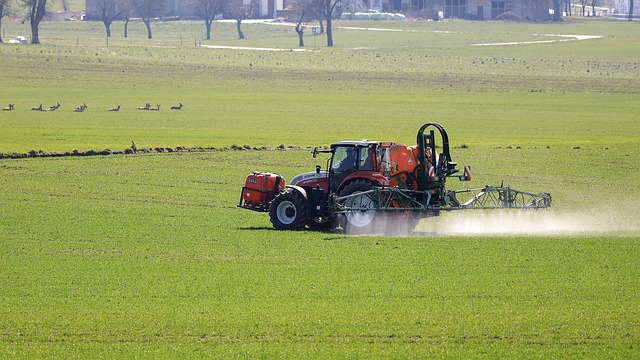Effective rodent control in households involves understanding mouse and rat behavior, identifying signs of activity, and implementing preventive measures. Key strategies include sealing entry points, maintaining cleanliness, trimming trees, securing garbage cans, and storing pet food securely. While traditional methods like traps and poisoning are effective, modern, safe, and eco-friendly solutions like Integrated Pest Management (IPM) are gaining popularity. Professional pest control services offer tailored strategies using advanced equipment and thorough cleaning for faster results and reduced future infestations. Sanitation and adhering to local laws and regulations are also crucial for successful rodent control.
Rodents can quickly turn into a homeowner’s worst nightmare, causing damage and posing health risks. Understanding their behavior and identifying early signs of infestation is key to effective residential rodent control. This comprehensive guide delves into various aspects, from common pests and prevention strategies to modern solutions, DIY tips, legal considerations, and maintenance advice. Learn how to keep your home rodent-free with expert insights on rodent control.
Understanding Rodent Infestations: Common Pests and Their Behavior

Rodent infestations are a common household issue, with mice and rats being the most prevalent pests. Understanding their behavior is key to effective rodent control. Mice, for instance, are excellent climbers and can squeeze through tiny gaps, making them hard to eradicate. They’re also nocturnal creatures, preferring the safety of darkness, and they reproduce rapidly, which can turn a small infestation into a major problem in no time. Rats, though larger, are equally adept at navigating through narrow spaces and are known for their strong sense of smell, allowing them to locate food sources effectively.
Both mice and rats are social animals, living in colonies, and they leave behind distinct signs of their presence—droppings, gnaw marks, and urine odors. Identifying these early indicators is crucial for effective rodent control. The behavior of these pests varies based on the time of year; they’re more active during certain seasons, seeking shelter and food as temperatures change. This knowledge can help homeowners implement preventive measures and catch infestations early, ensuring a safer, healthier living environment through proper rodent control practices.
Identifying Signs of Rodent Activity in Your Home

Identifying signs of rodent activity is the first step in effective residential rodent control. Keep an eye out for telltale clues such as droppings, which can range from small, dark pellets to larger, coarse fragments, depending on the species. Chewed wires, insulation, or wooden structures are another common indicator, as rodents use their incisors to gnaw their way through materials in search of food and shelter.
Pests also leave behind distinct odours and marks. A musky, urinary smell may be present in areas where rodents are active, while greasiness on surfaces indicates the presence of oil from their fur. You might also notice holes or tunnels leading to hidden nests, often in walls, attics, or beneath floors. Regular inspections and prompt action can prevent rodent infestations from becoming severe, ensuring a safer and healthier living environment through effective rodent control.
Prevention Strategies: Keeping Rodents at Bay

Rodent control begins with prevention, as it’s often easier and more cost-effective to keep rodents out than to remove them after they’ve moved in. The first line of defense is to seal entry points, such as gaps around pipes, wires, and doors. Maintaining a clean home, especially storing food in airtight containers, can also deter rodents. Regularly trimming trees and shrubs away from the house and securing garbage cans with tight-fitting lids further reduces attraction. Pet owners should take extra precautions, like keeping pet food stored securely, as rodents are attracted to sources of food and water.
Additional preventive measures include installing weatherstripping around windows and doors and ensuring that any visible signs of damage or holes are repaired promptly. Using traps or repellents as a last resort can be effective, but they’re not always humane or eco-friendly. In many cases, professional rodent control services offer the most comprehensive and persistent solutions for dealing with rodents over the long term.
Traditional Methods of Residential Rodent Control

In the realm of residential rodent control, traditional methods have long been employed to keep homes free from unwelcome visitors. These include the use of traps, which can be either mechanical or chemical, designed to capture and eliminate rodents humanely or swiftly. Another conventional approach is poisoning, utilizing baits laced with harmful chemicals to attract and dispatch rodents. While effective, these tactics pose potential risks to pets, children, and the environment if not handled with care.
Additionally, physical barriers such as sealing entry points and securing garbage cans have been proven invaluable in preventing rodent infestation. Professional pest control services often employ a combination of these traditional methods, tailoring their strategies based on thorough inspections and an understanding of local rodent behavior. By addressing existing vulnerabilities and implementing robust preventive measures, homeowners can achieve lasting rodent control, ensuring a safer and healthier living environment.
Modern, Safe, and Eco-Friendly Rodent Control Solutions

In today’s world, residential rodent control has evolved beyond traditional methods, embracing modern, safe, and eco-friendly solutions that are both effective and responsible. These innovative approaches prioritize the well-being of both residents and the environment, making them ideal choices for those seeking long-term, sustainable rodent management. One such solution is the use of integrated pest management (IPM) strategies, which focus on preventing and minimizing pest infestations through a combination of non-chemical methods like sealing entry points, maintaining cleanliness, and introducing natural predators.
Another prominent trend in rodent control is the adoption of environmentally friendly chemicals and substances. These products are designed to be less toxic, breaking down quickly and causing minimal harm to non-target organisms, pets, and human health. Additionally, many modern solutions offer smart and targeted applications, such as baits and traps that attract rodents without harming beneficial wildlife or contaminating the environment. By opting for these advanced yet safe methods, homeowners can effectively address rodent issues while maintaining a healthy and balanced ecosystem around their properties.
DIY vs Professional Rodent Control: Pros and Cons

DIY rodent control methods can be tempting for those who prefer hands-on approaches and want to save costs. However, it’s crucial to weigh the potential drawbacks. While some DIY solutions like setting traps or using natural repellents may provide temporary relief, they might not address the root causes of infestation and could even pose health risks if not used properly. Moreover, rodents are adaptable and can develop resistance to certain DIY tactics over time.
Professional rodent control services offer a more comprehensive and effective approach. Expert technicians employ advanced equipment, such as high-tech traps and targeted treatments, ensuring minimal environmental impact. They also identify and seal entry points, clean infested areas thoroughly, and provide ongoing monitoring. This method guarantees faster results and significantly reduces the risk of future infestations, making it a cost-effective investment in the long run for effective rodent control.
The Role of Sanitation in Effective Rodent Management

Maintaining proper sanitation practices is a cornerstone of effective rodent control strategies. Rodents are highly attracted to sources of food, water, and shelter, making areas with poor hygiene ideal habitats for them. Regular cleaning, including removing food debris, sealing garbage bins, and wiping down surfaces, significantly reduces their appeal as living spaces. Moreover, eliminating standing water and fixing leaks prevents these pests from thriving, as they require moisture for survival.
Implementing robust sanitation measures not only discourages rodents from entering homes or buildings but also disrupts their existing populations. By minimizing available resources, sanitation plays a pivotal role in deterring rodents and facilitating successful rodent control programs.
Legal Considerations and Regulations for Residential Rodent Control

When it comes to residential rodent control, understanding legal considerations and regulations is paramount for any homeowner or property manager aiming to maintain a pest-free environment. Different regions have distinct laws governing the use of pesticides and methods for controlling rodents, emphasizing safety and environmental protection. These regulations often dictate what chemicals can be used, how they should be applied, and who is authorized to conduct such operations.
Non-compliance with local rodent control regulations can result in fines or legal action. Homeowners should familiarize themselves with the guidelines set by their municipality, which may include registering pest control services, obtaining permits for certain treatments, and adhering to specific labeling instructions on rodenticides. By staying informed and following these legal frameworks, individuals can effectively manage rodent infestations while ensuring they act responsibly and within the boundaries of the law.
Maintenance Tips to Prevent Future Rodent Infestations

Maintaining a rodent-free home requires proactive measures and consistent effort. Regular inspections are key; check for any signs of entry, such as holes or gaps in walls, floors, or ceilings, especially around pipes and utility lines. Seal these openings with appropriate materials to prevent future access. Keep your home clean and clutter-free, as rodents are attracted to food sources and hiding places. Store food items in airtight containers and promptly clean up spills or crumbs. Moreover, ensure proper garbage disposal and maintain a tidy yard, removing potential nesting sites and food sources that might attract rodents.
Additional maintenance tips include trimming trees and shrubs away from windows and doors, as well as securing trash cans with tight-fitting lids. Repair any leaks in plumbing systems promptly, as dripping water can create inviting habitats for rodents. Regularly vacuuming and wet mopping floors can also help remove debris and food particles that might attract these pests. By implementing these preventive measures, homeowners can significantly reduce the risk of rodent infestations and maintain a clean, healthy living environment.
